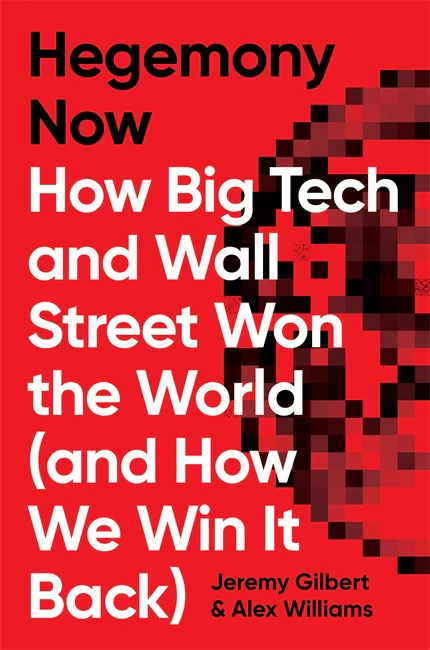Election Special #3 – Labour party Manifesto – anything worthwhile? with Jeremy Gilbert
What are we being offered by the incoming Labour Government? What’s good in their Manifesto (spoiler alert, not very much)? What’s not good? What could be improved upon and how do we go about pushing them to a place where they actually do something useful that isn’t simply a repeat of the same-old, same-old we’ve had for the past decade and a half?
Our third Election Special Guest is Dr Jeremy Gilbert, professor of culture and political theory at the University of East London. He’s the author of several books including Twenty First Century Socialism and Hegemony Now: How Wall Street and Big Tech won the world – and how we can win it back which was written with Alex Wiliams.
Jeremy’s been on the podcast before back in Episode #95 – and he’s always my go-to person for insight into progressive thinking within the current Labour party, and for a broader, more political scientific view of where we’re at.
As chance would have it the Labour party published their manifesto about thirty six hours before we were due to record, so I took the chance to ask Jeremy what he thought of it: what’s good, what could be better, what can we who care about people and planet do to help shift us onto a trajectory where we’re not barrelling towards the edge of the biophysical cliff. It’s not the most upbeat of conversations – because the answers to all three are ‘not a lot, but joining a union is probably one of the most useful things you can do’ – but it gave us a chance to look into a bit of the ideological, conceptual and pragmatic views of the current Labour party – and how we can shape things for a world that will work.
Election Special #3
LINKS
Jeremy’s Website
Jeremy’s Books
Forthcoming book: Hegemony Now: How Wall Street and Big Tech won the world – and how we can win it back
Jeremy on Twitter
Jeremy in Episode #95 of Accidental Gods – Towards a Progressive Future
Unite Community Membership
Green Party Manifesto
Liberal Democrat Manifesto
Labour Party Manifesto
Compass ‘Win As One’ vote swapping site
In Conversation
You may also like these recent podcasts
Sit with the River, Breathe Sacred Smoke, Love with the World: Building a Bioregional world with Joe Brewer
How can Bioregionalism supplant the nation state as the natural unit of civilisation? Joe Brewer is living, breathing and teaching the ways we can work together with each other and the natural flows of water and life.
Solstice Meditation 2025 – Sun Stands Still – by Manda Scott
Here is a meditation for the shortest night of the year – the time when the sun stands still.
It doesn’t have to be at the moment of the solstice, it’s the connection that counts, the marking of the day. And you don’t have to limit yourself to one pass through – please feel free to explore this more deeply than one single iteration.
Thoughts from the Solstice Edge: Turning the Page on a Dying System with Manda Scott
As we head into the solstice- that moment when the sun stands still—whether you’re in the northern hemisphere where we have the longest day, or the southern, where it’s the longest night—this solstice feels like a moment of transformation.
Falling in Love with the Future – with author, musician, podcaster and futurenaut, Rob Hopkins
We need all 8 billion of us to Fall in Love with a Future we’d be proud to leave to the generations that come after us. So how do we do it?

STAY IN TOUCH
For a regular supply of ideas about humanity's next evolutionary step, insights into the thinking behind some of the podcasts, early updates on the guests we'll be having on the show - AND a free Water visualisation that will guide you through a deep immersion in water connection...sign up here.
(NB: This is a free newsletter - it's not joining up to the Membership! That's a nice, subtle pink button on the 'Join Us' page...)





